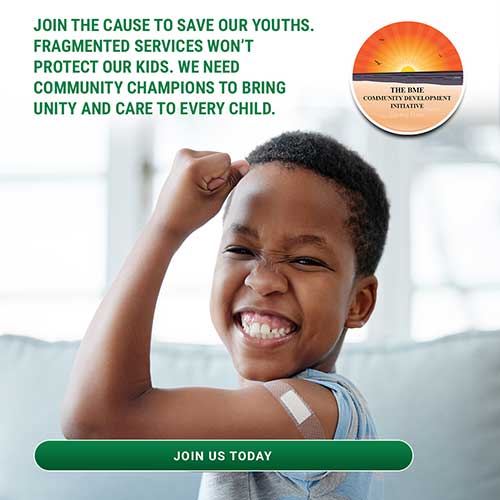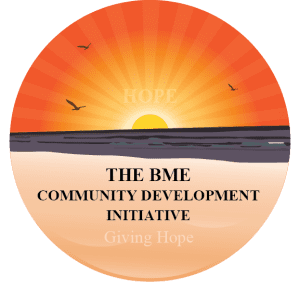Gratitude: Turning Entitlement into Appreciation

A Tale of Two Teens
Meet James and Daniel, both 18 and from similar comfortable backgrounds in Surrey. James is often sullen and angry. He feels he is been dealt a bad hand in life because his parents did not buy him a car for his birthday and he did not get into his first-choice uni. He scrolls Instagram bitterly, envying friends on exotic holidays. When his parents remind him how fortunate he is in other ways, he snaps, “Whatever. Not my fault you’re cheap.”
Now meet Daniel. He also did not get into his top uni and has no car, but his outlook differs. “I’m disappointed,” he admits, “but I’m grateful I have other uni options and parents who support me.” He thanks his dad for lending him the old family car when needed and works a part-time job cheerfully, saving up for one of his own someday.
He posts on social media too photos of local hikes and homemade pizza nights expressing appreciation for simple joys. Over time, James grows more resentful and demotivated, dropping out of his backup uni after one term, blaming the “lame” school for his lack of engagement. Daniel, meanwhile, thrives at his backup uni, making good friends and seizing opportunities. He writes his parents regular thank-you notes for their help and graduates with honours.
This hypothetical contrast illustrates a real phenomenon: entitlement vs. appreciation. James operates from entitlement focusing on what he lacks or what he thinks he deserves, which leads to perpetual dissatisfaction and stunted growth.
Daniel operates from appreciation focusing on what he has and can do, which breeds contentment and drive. While simplified, these attitudes often shape life trajectories. Entitlement the opposite of gratitude can cause people to self-sabotage. Why? Because if the world never measures up to your expectations, you stop putting in effort and alienate those around you.
James, feeling shortchanged and ungrateful, pushed away his parents’ guidance and took his education for granted. His negative mindset became a self-fulfilling prophecy of failure. Daniel’s gratitude, conversely, fuelled his work ethic and resilience. By valuing what he did have education, family support, he made the most of it and attracted goodwill professors and peers wanted to help him because he was humble and appreciative.
Entitlement Culture and Its Discontents
We live in a culture that unwittingly encourages entitlement, especially among youth. Marketing and social media constantly tell young people they “deserve” the best – the latest phone, the perfect body, the dream vacation. “Treat yourself” is fun in moderation, but taken to extremes it morphs into “I’m owed everything I want now.”
Add to that overprotective parenting in some quarters, where kids never hear “no” or never have to face discomfort, and you brew a recipe for entitlement. The result? Young adults who struggle when reality does not cater to them.
University counsellors have noted a rise in students who expect high grades just for showing up, or who are quick to label constructive criticism as unfair. Employers too report some new hires bristle at entry-level tasks or feedback, having expected to leap to success.
This is not all youth, of course, and structural issues play a role in expectations vs. reality. But an entitlement mentality exacerbates these transitions, making normal setbacks feel like grievous injustices. It also correlates with higher rates of depression and anger.
If you believe you are constantly being denied what is due, you exist in a state of grievance. Indeed, studies have linked a sense of entitlement to greater interpersonal conflicts and unhappiness.
How to counteract entitlement? Enter gratitude. Gratitude re-frames “I deserve this” to “I am fortunate to have this.” That shift can be profound in attitude adjustment. For instance, instead of “I deserve a top salary right out of uni,” a grateful mindset is “I’m thankful for the job opportunity to learn and earn my way up.”
Instead of James’s “I deserve a car,” think “I’m lucky to have access to a car when I need it” or even “I’ll be grateful for the exercise when I bike or take the bus!” The specific thought might sound cheesy, but it plants contentment. The person no longer feels a constant shortfall between expectation and reality; rather they feel equipped and optimistic within reality.
The Gratitude Tipping Point
The tricky part is reaching a tipping point where gratitude outweighs entitlement. A bit of hardship or responsibility triggers this. Many entitled teens have a wake-up call when they move out and realise milk does not magically replenish in the fridge and bills must be paid on time.
Suddenly, what Mum and Dad did makes sense, and gratitude blooms. But ideally, one should not need a harsh shock to learn appreciation. Parents can instil it by not giving everything at once and by modelling thankfulness themselves.
For example, requiring teens to do chores or work a summer job can make them value the labour behind comfort. If James had to save for part of a car, maybe he would be more grateful if he eventually got one, rather than resentful when he did not.
Community service is another great eye-opener: seeing those less fortunate like volunteering at a shelter can snap a teen out of “woe is me, I don’t have the new iPhone” when they meet a peer who does not have a safe home.
Gratitude flourishes when perspective widens. Education systems including mandatory service or intercultural exchanges find students return with more gratitude for their own circumstances and a desire to contribute positively rather than just consume.
Gratitude should also be woven into everyday language. In entitled culture, people rarely say “thank you” because they feel they are just getting what’s due. Flip that script.
Normalise thanking your children as well when they do something right; they learn thanking is mutual, not just something kids must do for adults. Encourage “thank you” to teachers, coaches, even siblings.
Initially it may be perfunctory but done consistently it sinks in as genuine. It also oils social interactions a thankful person is usually well-liked because they make others feel valued.
This can even break cycles of entitlement: imagine an entire class of teens known for writing heartfelt thank-you notes at year-end to their teachers and cafeteria staff.
Those staff would feel appreciated and likely go the extra mile for the students, providing even better service, which in turn students can be grateful for – a positive feedback loop in what’s often a fraught teen-school relationship.
For those already deep in entitlement like perhaps James, sometimes a candid conversation or journaling can help identify the roots. Entitlement masks insecurity “I need X to be worthy” or past overindulgence not their fault.
A counsellor might have asked James to list things he is gotten in life and whether he earned them or they were gifts of circumstance. That exercise humbles a person into realising most good things involved others’ contributions or luck, hence something to be grateful for rather than arrogantly assumed.
Gratitude does not mean one cannot be proud of achievements. It just contextualises them. Like, “I studied hard to ace that exam and I’m grateful for the teacher who prepared me well.” It combats narcissism by acknowledging interdependence.
From “Gimme” to “Thank You”
There is a memorable line in a kids’ cartoon where a character who always demanded more learns his lesson and declares: “I am switching from gimme-gimme to thanky-thanky!” Cheesy as it is, that is the crux. Moving from a mindset of constant acquisition and demands to one of appreciation and contentment can transform an individual and community.
Materially, people might even end up with more in the long run because they are easier to work with and more proactive. Daniel advanced further than James. But even if not, their subjective well-being is certainly higher.
Gratitude enhances enjoyment of what one has. It turns meals into feasts and houses into homes, metaphorically speaking. It also encourages generosity: a grateful person, feeling “I have enough,” is more likely to share.
An entitled person, feeling “I never have enough,” may hoard or refuse to give. So, gratitude can indirectly alleviate issues like greed and inequality by motivating altruism. It is hard data to measure, but one can observe communities where gratitude and strong social ties lead to more cooperative economies and volunteerism.
On the societal level, Western consumer culture could do with a dose of gratitude reorientation. Instead of always pushing the new, the upgrade, the “don’t settle for less,” perhaps media and leaders could highlight gratitude for sufficiency.
Some environmental movements tie into that: being grateful for nature’s gifts, we moderate our exploitation of them and find satisfaction in simpler lifestyles.
In that sense, gratitude could even be seen as a sustainability virtue countering the entitled stance that earth’s resources are inexhaustibly ours to use.
Back to personal scale. If you find yourself or someone you know caught in a whinge cycle always complaining, never satisfied, try a gratitude challenge.
One week, no complaints without countering each with a thank-you. E.g., “Ugh it’s raining on my picnic… but I am thankful we can afford to have a picnic and that the plants get water.”
It might feel contrived, but many find by week’s end their mood and perspective have shifted. The rainy day becomes less of a tragedy and more an inconvenience tempered by positive thoughts.
And crucially, practice acknowledging others: thank your friend for listening to you vent, thank your parent for picking you up, thank the bus driver. It will feel good.
It might even surprise or delight the recipient sadly, because gratitude is rarer than it should be. Over time, these acts outwardly train the brain inwardly to look for things to be grateful about. The world does not change, but your interpretation does, and that can make all the difference.
Entitlement is a dead-end road of frustration, whereas gratitude opens many paths forward to happiness, to strong relationships, to success earned and savoured.
The sooner we guide young people from the former to the latter, the better for them and society. Daniel and James may be archetypes, but their futures show a truth: gratitude is a key determinant in who flourishes versus who flounders when reality bites.
So, let’s raise a generation of “thanky-thanky” folks not because we demand they be polite, but because we know their lives will be richer for it, and the world kinder. Every “thank you” chips away at entitlement and builds up a culture of respect and mutual care. That is a goal well worth striving for, and one within reach if we consistently choose appreciation over expectation.





